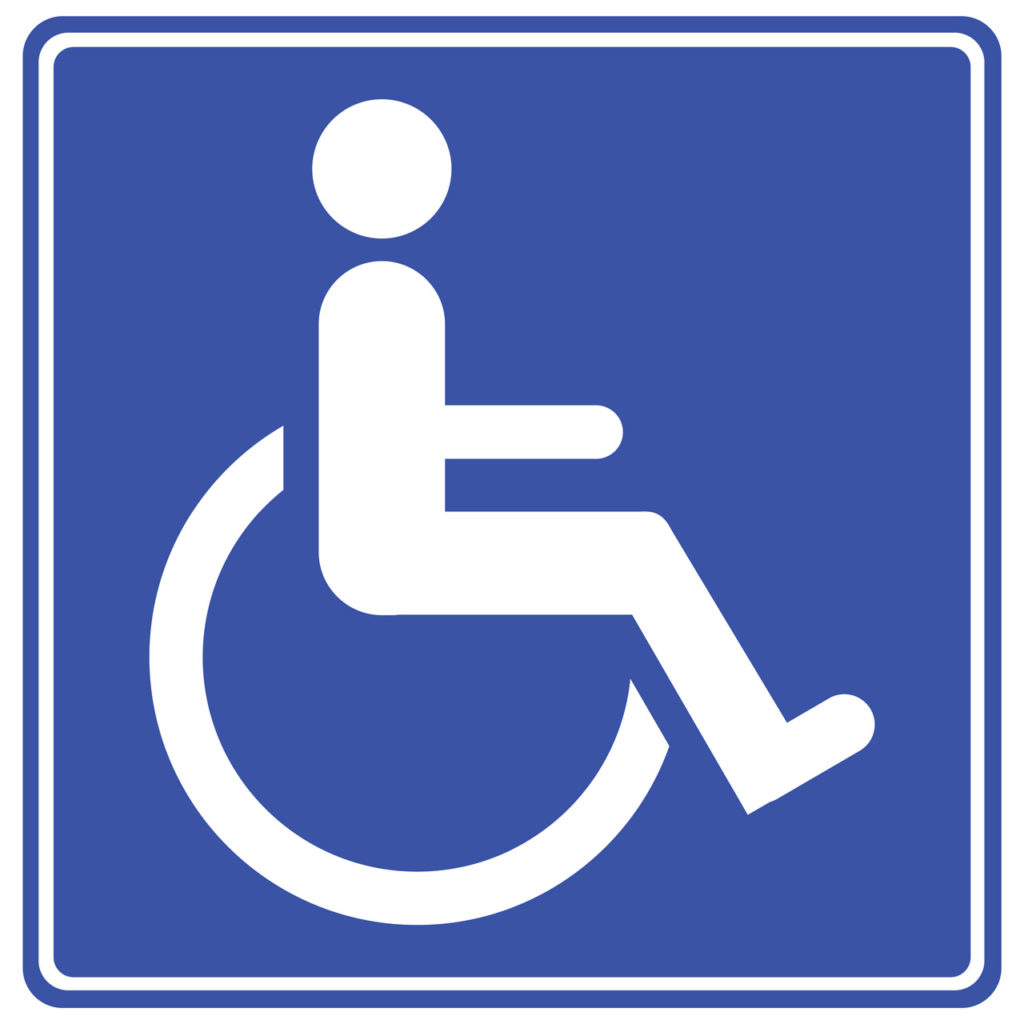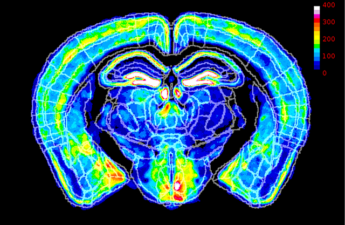
Ben Salentine, associate director of health sciences managed care at the University of Illinois Hospital and Health Sciences System, hasn’t been weighed in more than a decade. His doctors “just kind of guess,” his weight, he said, because they don’t have a wheelchair-accessible scale.
He’s far from alone. Many people with disabilities describe challenges in finding physicians prepared to care for them. “You would assume that medical spaces would be the most accessible places there are, and they’re not,” said Angel Miles, a community-based services policy analyst at Access Living, a disability rights advocacy group based in Chicago.
Not only do clinics often lack the necessary equipment — such as scales that can accommodate people who use wheelchairs — but at least some physicians actively avoid patients with disabilities, using excuses such as “I’m not taking new patients,” or “you need a specialist,” according to a paper in the October 2022 issue of Health Affairs.
The work, which analyzed focus group discussions with 22 physicians, adds context to a larger study published February 2021, also in Health Affairs, that showed only 56 percent of doctors strongly welcomed patients with disabilities into their practice. Less than half were confident or very confident that they could provide the same quality of care to people with disabilities as they could to other patients. The studies add to a larger body of research suggesting that patients with a variety of conditions that doctors may deem more difficult to treat often struggle to find quality care. The Americans with Disabilities Act of 1990, or ADA, theoretically protects the one in four adults in the United States with a disability from discrimination in public and private medical practice, but enforcing it is a challenge.
Laura VanPuymbrouck, an assistant professor in the Department of Occupational Therapy at Rush University, said the 2021 survey was “groundbreaking. It was the crack that broke the dam a little bit.” Now, researchers are hoping that medical schools, payers, and the group that accredits hospitals, the Joint Commission, will push health care providers for more equitable care.
Information about the health care of people with disabilities is limited, due in part to scant data, according to Tara Lagu, co-author of both the 2021 and 2022 papers and director of the Institute for Public Health and Medicine’s Center for Health Services & Outcomes Research at the Feinberg School of Medicine at Northwestern University. The few studies that have been done suggest that people with disabilities get less preventive care and have worse outcomes than their non-disabled counterparts.
About a decade ago, Lagu was discharging a patient who was partially paralyzed and used a wheelchair. The patient’s discharge notes repeatedly recommended an appointment with a specialist, but it hadn’t happened. Lagu asked why. Eventually, the patient’s adult daughter told Lagu that she hadn’t been able to find a specialist who would see a patient in a wheelchair. Incredulous, Lagu started making calls. “I could not find that kind of doctor within 100 miles of her house who would see her unless she came in an ambulance and was transferred to an exam table by EMS,” she said, “which would have cost her family more than $1,000 out of pocket.”
In recent years, studies have shown that even when patients with disabilities can see physicians, their doctors’ biases toward conditions like obesity, intellectual disabilities, and substance use disorders can have profound impacts on the care they receive. Physicians may assume an individual’s symptoms are caused by obesity and tell them to lose weight before considering tests.
For one patient, this meant a seriously delayed diagnosis of lung cancer. Patients with mobility or intellectual challenges are assumed to be celibate, so their providers skip any discussion of sexual health. Those in wheelchairs may not get weighed, even if they’re pregnant, a time when tracking one’s weight is especially important because gaining too little or too much weight can put the baby at risk of developmental delays or the mother at risk of complications during delivery.
These issues are well-known to Lisa Iezzoni, a health policy researcher at Massachusetts General Hospital and professor of medicine at Harvard Medical School. Over the past 25 years, Iezzoni has interviewed about 300 people with disabilities for her research into their health care experiences and outcomes, and she realized that “every single person with a disability tells me their doctors don’t respect them, has erroneous assumptions about them, or is clueless about how to provide care.” In 2016 she decided it was time to talk to doctors. Once the NIH funded the work, she and Lagu recruited the 714 physicians that took the survey for the work published in 2021 in Health Affairs.
Not only did many doctors report feeling incapable of properly caring for people with disabilities, but the vast majority held the false belief that those patients have a worse quality of life, which could lead to offering fewer treatment options.
During that study, Iezzoni’s team recorded three focus group discussions with 22 anonymous physicians. While the open-ended discussions weren’t included in the initial publication, Lagu said she was “completely shocked” by some of the comments. While some doctors in the focus groups welcomed the idea of additional education to help them better care for patients with disabilities, others said they were overburdened and that the typical 15-minutes allotted for office visits is not enough to provide the patients with proper care. Still others “started to describe that they felt these patients were a burden and that they would discharge patients with disability from their practice,” she said. “We had to write it up.”
The American Medical Association, which is the largest professional organization representing doctors, declined an interview request from Undark, and would not offer comments on the two Health Affairs studies. When asked about the organization’s policies on caring for patients with disabilities, a representative pointed to the AMA’s strategic plan, which includes a commitment to equity.
Patients with disabilities are supposed to be protected by law. Nearly 50 years ago, Congress passed Section 504 of the Rehabilitation Act of 1973, which prohibited any programs that receive federal funding, such as Medicare and Medicaid, from excluding or discriminating against individuals with disabilities. In 1990, the Americans with Disabilities Act extended these protections to include public and private institutions.
The ADA outlines some guidelines for accessible buildings, such as requiring ramps, but does not specify details about medical equipment such as adjustable exam tables and wheel-chair accessible scales. While these items are necessary to provide adequate care for many people with disabilities, only 19.1 percent and 10.9 percent of doctors’ offices have them, respectively.
Miles said she’s noticed an improvement in care since the ADA went into effect, but she still frequently experiences challenges in healthcare as a Black woman who uses a wheelchair. “We need to keep in mind the ADA is not a building code. It’s a civil rights law,” said Heidi Johnson-Wright, an ADA coordinator for Miami-Dade County in Florida, who was not speaking on behalf of the county. “If I don’t have access to a wellness check at a doctor’s office or treatment at a hospital then you’re basically denying me my civil rights.”
The ADA isn’t easy to enforce. There are no “ADA police” said Johnson-Wright, to check if doctor’s offices and hospitals are accessible. Instead, either a private citizen or the Department of Justice has to sue a business or institution believed to be in violation of the ADA. Lawyers have filed more than 10,000 ADA lawsuits each year since 2018. Sympathizing with businesses and doctors, some people accuse the plaintiffs of profiteering.
And it’s not just about accessible equipment. In 2018, the Justice Department sued a skilled nursing facility for violating the ADA, after the facility refused to treat a patient with substance use disorder who needed medication to help maintain sobriety. Since then, the department settled with eight other skilled nursing facilities for similar discrimination. “It is a violation of the ADA,” to deny someone care based on the medications they need, Sarah Wakeman, an addiction medicine specialist as Massachusetts General Hospital, wrote in an email, “and yet continues to happen.”
Indeed, in the focus groups by Lagu and Iezzoni, some of the doctors revealed that they view the ADA and the people it protects with contempt. One said people with disabilities were “an entitled population.” Another said that the ADA “works against physicians.”
The Department of Health and Human Services is aware of the issue. In a response to emailed questions, requested to be attributed to an HHS spokesperson, Rachel Klugman Seeger, a senior communications adviser for the department wrote that “[W]hile we recognize the progress of the ADA, important work remains to uphold the rights of people with disabilities.” The Office of Civil Rights, she continued, “has taken a number of important actions to ensure that health care providers do not deny health care to individuals on the basis of disability and to guarantee that people with disabilities have full access to reasonable accommodations when receiving health care and human services, free of discriminatory barriers and bias.”
Researchers and advocates told Undark that key to improving health care for those with disabilities is addressing it directly in medical education and training. “People with disabilities are probably one of the larger populations,” that physicians serve, Salentine said.
Ryan McGraw, a health/home and community based services community organizer with Access Living, helps provide education to medical schools in the Chicago on treating patients with disabilities. He regularly receives positive feedback from medical students but says the information needs to be embedded in the medical school curriculum so it’s not “one and done.” That’s difficult, however, as curriculums aren’t standardized across hundreds of medical schools in the U.S.
In one effort to address the issue, The Alliance for Disabilities in Health Care Education, a coalition of professionals and educators, of which McGraw is a member, has put together a list of 10 core competencies that should be included in a doctor’s education, such as considerations for accessibility, effective communication, and patient-centered decision making.
One of the simplest solutions might be hanging signs or providing accessible information on patients’ rights in exam rooms. “It’d be there for patients, but it’d be also there as a reminder to the providers. I think that’s a super easy thing to do,” said VanPuymbrouck. Miles said this could be a good start, but “it’s not enough to just give people a little pamphlet that tells you about your rights as a patient.” While all doctors should be willing and able to care for patients with disabilities, she thinks a registry that shows which providers take certain types of insurance, such as Medicaid, and also have disability accommodations such as wheelchair accessible equipment, would go a long way.
Some advocates have been calling on the Joint Commission to require disability accommodations for hospitals that want accreditation for more than 10 years. The step could be effective, because accreditation “is extremely important,” to hospitals, said Lagu.
On Jan. 1, 2023, new Joint Commission guidelines will require that hospitals create plans to identify and reduce at least one health care disparity among its patients. Improving outcomes for people with disabilities could be one such goal. But, Maureen Lyons, a spokesperson for the Joint Commission added, “if individuals circumvent the law, standards won’t be any more effective.”
Lastly, said Lagu, “we have to pay more when you are providing accommodations that take time or cost money. There’s got to be some accounting for that in the way we pay physicians.”
One of the most basic things people with disabilities are asking for is respect. The biggest finding in the 2021 survey, said Iezzoni, is that doctors didn’t realize that the proper way to determine what accommodations a facility needs for its patients with disabilities, according to the ADA, is to just ask the patients.
“I can’t tell you how many times I go to a doctor’s office and I’m talking but they’re not hearing anything,” said Salentine. “They’re ready to speak over me.”
Emma Yasinski is a freelance science journalist whose work has been published in The Scientist, Discover Magazine, and Kaiser Health News, among other publications.
This article was originally published on Undark.
Read the original article.



